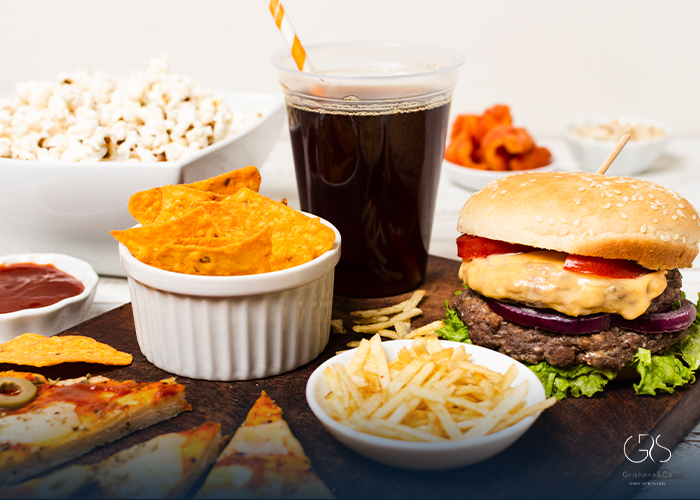Trans fats have gained a notorious reputation in recent years for their harmful impact on our health. These artificially created fats are primarily found in processed and fried foods, increasing the risk of heart disease, obesity, and other chronic conditions. As we strive to make healthier choices, it’s essential to identify and avoid foods rich in trans fats.
In this article, we will explore the detrimental effects of trans fats while shedding light on 19 common food items that are notorious for containing these harmful fats. Backed by relevant statistics and insights from dietitians, this comprehensive guide aims to empower you with the knowledge needed to make informed decisions about your diet.
According to the American Heart Association (AHA), trans fats raise LDL (bad) cholesterol levels, leading to an increased risk of developing heart disease and stroke. Furthermore, trans fats have been linked to higher levels of inflammation, insulin resistance, and obesity, contributing to the growing prevalence of chronic diseases worldwide.
As we delve into the list of 19 foods to avoid, it’s crucial to consider diverse perspectives and catering to a variety of dietary needs. While some individuals may be able to tolerate small amounts of trans fats, this article aims to provide information to help minimize consumption and prioritize healthier alternatives.
Margarine and Vegetable Shortening:
When looking for healthier alternatives to margarine and vegetable shortening, consider choosing olive oil or avocado oil instead. These options provide beneficial monounsaturated fats that support heart health, unlike the high levels of trans fats often found in margarine and shortening.
Fried Foods:
French fries, fried chicken, and other deep-fried delights are notorious for their trans fat content. Limiting your consumption of these indulgent treats can help reduce your overall trans fat intake.
Packaged Baked Goods:
Store-bought baked goods like cookies, cakes, and pastries often contain trans fats to extend their shelf life. Opting for homemade alternatives or seeking out trans fat-free options can help satisfy your sweet cravings without the added health risks.
Microwave Popcorn:
While seemingly innocent, microwave popcorn often contains partially hydrogenated oils – a significant source of trans fats. Instead, try popping your popcorn using healthier oils such as coconut or avocado oil.

Crackers and Chips:
Many popular brands of crackers and chips are loaded with trans fats. Check the labels for phrases such as “partially hydrogenated,” as these indicate the presence of trans fats. Explore whole grain alternatives or opt for air-popped snacks for a healthier crunch.
Fast Food Meals:
Fast food chains are notorious for using hydrogenated oils in their cooking processes, which contributes to their trans fat content. Gradually reduce your consumption of fast food and opt for freshly prepared meals at home.

Processed Meats:
Delicious but dangerous, processed meats like sausages, hot dogs, and bacon often contain high levels of trans fats. Balance your diet by incorporating lean proteins like chicken, fish, and legumes.
Frozen Dinners:
Convenient frozen dinners are often packed with trans fats to enhance flavor and prolong shelf life. Prioritize home-cooked meals and meal prepping to ensure healthier options throughout the week.
Doughnuts:
These sweet treats are typically deep-fried using trans fat-laden oils. While an occasional indulgence is acceptable, consider healthier alternatives like homemade baked goods or whole-grain pastries.
Creamers:
Non-dairy creamers, often used in coffee, can contain trans fats. Opt for natural alternatives like almond milk or coconut milk to enhance your morning brew without compromising your health.
Pie Crusts:
Store-bought pie crusts often contain trans fats, compromising an otherwise healthy homemade pie. Consider making your own crust using healthier alternatives like whole wheat flour or almond meal.
Salad Dressings:
While salads are often considered healthy choices, commercially prepared dressings can hide trans fats. Read labels carefully or, better yet, make your own dressings using healthy oils and vinegar options.
Ice Cream:
Many ice creams and frozen desserts contain trans fats to improve texture and flavor. Seek out trans fat-free ice cream brands or satisfy your sweet tooth with natural frozen fruit options.

Pancake and Waffle Mixes:
Convenient mixes can contain trans fats, especially those marketed as “instant.” Opt for whole grain pancake and waffle mixes or, better yet, make your own using healthier ingredients.

Canned Soup:
Cream-based canned soups often contain partially hydrogenated oils. Opt for homemade soups or check labels carefully to select healthier options.
Pizza:
Commercially prepared frozen pizzas and delivery options may contain trans fats in their crusts and toppings. Try making homemade pizza using healthier alternatives for a healthier and satisfying meal.

Non-Dairy Cream Cheese:
Dairy-free cream cheese products often use hydrogenated vegetable oils, making them high in trans fats. Look for healthier alternatives like homemade nut-based spreads or avocado-based spreads.
Instant Noodles:
Quick and easy, instant noodles often come with a high trans fat content due to the use of partially hydrogenated oils. Opt for healthier options like rice noodles or homemade broth-based soups.
Biscuits and Gravy:
A beloved breakfast choice, biscuits and gravy often contain trans fats due to the use of shortening. Seek out healthier recipes or limited consumption of this indulgent treat.
By avoiding these 19 food items, you can significantly reduce your intake of trans fats and take a significant step towards improving your overall health and well-being. Prioritize whole foods, cooking at home, and reading labels carefully to make informed choices about your diet.
Remember, moderation is key. While avoiding trans fats is crucial, it’s equally important to maintain a balanced, varied diet composed of nutrient-rich foods. Consult with a registered dietitian or healthcare professional to create a personalized plan that suits your specific needs.

Conclusion
Being aware of the detrimental effects of trans fats on our health allows us to make informed choices about what we consume. By avoiding the 19 foods highlighted in this article, we can take a significant step towards achieving a healthier, more balanced lifestyle.
Sources
- American Heart Association, Trans Fats
- National Library of Medicine, Dairy Fats and Cardiovascular Disease










